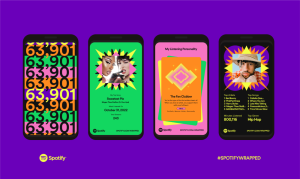Is AI the Silent Killer of Developer Skills?
Artificial intelligence is making waves across almost every industry, and software development is no exception. However, as powerful as AI tools like Copilot and ChatGPT are, they come with hidden costs that could undermine the very skills developers work hard to hone. While AI is undoubtedly an incredible asset, the real danger lies in how we use it—or rather, how we rely on it too much.
We sat down with our Senior Fullstack Developer, Lee Jackson, to get his thoughts on the subject and some top tips on keeping your curiosity alive in the age of AI.
AI isn’t the threat. The real threat is what we lose when we use it as a crutch: curiosity, problem-solving ability, and fundamental coding skills.
Let’s explore the cognitive cost of overusing AI and how it’s changing the way we approach development.
The Cognitive Cost of AI
When we use AI tools excessively, we stop exercising the core skills that make us great developers. Debugging becomes a passive process when AI points out errors for us. Syntax knowledge fades into the background as autocomplete takes over. Problem-solving muscles weaken when answers come at the click of a button.
While AI might make us faster in the short term, it’s doing so at the expense of long-term growth. Today’s convenience could lead to tomorrow’s stagnation.
Tip 1: When faced with a problem, challenge yourself first. Give yourself 30 minutes to solve the issue before turning to an AI tool for assistance. This friction—the struggle to figure things out—is where the real learning happens.
From Problem-Solving to Waiting for Outputs
Programming has always been about solving difficult, complex problems. But increasingly, it’s becoming about waiting for AI to generate the answers for us. Sure, AI tools can speed up productivity, but they risk transforming developers into mere validators of code, rather than active problem solvers.
Instant AI-generated answers can be addictive, offering quick solutions that feel rewarding. However, true expertise comes from working through a problem yourself. The joy and growth that come from solving a challenge manually are invaluable.
Tip 2: Always consult the official documentation before turning to AI. Documentation offers precise, reliable answers and helps you develop a deeper understanding of the underlying principles.
The Junior Developer Crisis
For junior developers, these are both the best and worst of times. On one hand, AI tools provide quick answers, which is tempting. But on the other hand, over-reliance on AI often leads to shallow understanding. Junior developers shouldn’t just be learning how to code—they should be learning how to think like a developer. The future won’t reward those who rely solely on AI tools, but those who develop the critical thinking skills to solve problems independently.
Tip 3: Put a ban on AI tools until you’ve mastered the fundamentals. Writing code yourself, making mistakes, and understanding why things work the way they do—this is how you’ll build the expertise you need for the future.
The Double-Edged Sword
AI is a powerful ally, but it’s also a potential trap. It’s great for handling repetitive, tedious tasks, leaving you to focus on the bigger, more complex challenges. But with every line of code AI writes for us, a little bit of our craftsmanship fades away. Over time, we might find ourselves relying on AI more than we should, and eventually, we could be leaning on it entirely.
Tip 4: Use AI tools sparingly—limit them to routine tasks, and avoid using them to solve problems or generate complex blocks of code. There’s no substitute for learning and understanding the problem yourself.
One of my favourite quotes is, “A smooth sea never made a skilful sailor.” The same could be said about developers. If AI solves every problem for you, you’re not truly learning—you’re simply drifting along. The real skills, the ones that set great developers apart, are forged in the storms—the bugs, the broken builds, and the late-night errors.
Use AI to assist, but don’t let it steer you away from the rough waters. Those challenges are what shape exceptional developers.
The key is balance—using AI to enhance our work, not replace the critical thinking and problem-solving that define great development. By leveraging AI wisely, we can ensure it complements our growth rather than replacing the very skills that make us truly effective developers.
Meet the author





